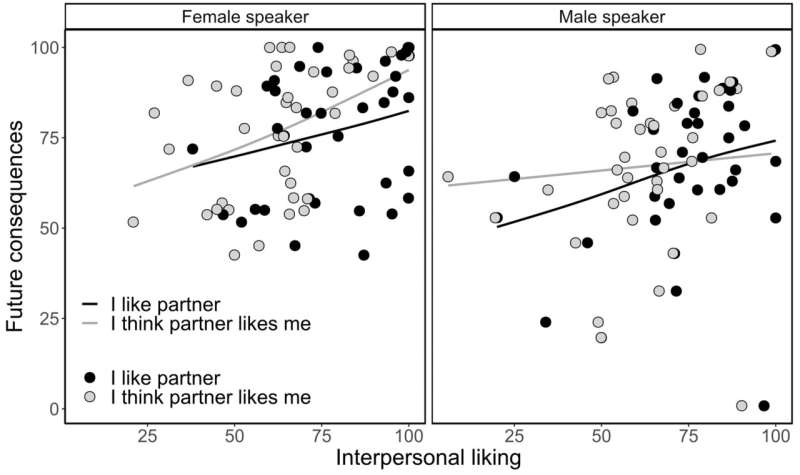This article has been reviewed according to Science X's editorial process and policies. Editors have highlighted the following attributes while ensuring the content's credibility:
fact-checked
trusted source
proofread
The 'liking gap' is real for second language English speakers, research shows

A study from Concordia's Applied Linguistics Lab suggests that most people are usually overly harsh on themselves when speaking in a second language.
Writing in the journal Languages, Ph.D. student Rachael Lindberg and her co-authors build on the previous understanding of individuals' metaperception—a person's idea of how they are perceived by others.
The idea that people frequently underestimate how likable they are, known as the liking gap, is well-established. But this study is the first to examine it in second-language speakers following a conversation in English.
"We found that the liking gap exists in second language speakers, just as it does among first language English speakers," Lindberg says.
"On average, participants underestimated how much they were liked by about 14 percentage points."
While the liking gap is common, she says it can possibly have significant adverse effects on second-language speakers. In this study, many of the participants are international students, a group that traditionally reports feeling isolated, out of touch, and lacking a sense of belonging.
Social and academic implications
The researchers recruited 76 English second language university students and paired them into roughly equal numbers of female-female, male-male, and female-male dyads, each with different first language backgrounds.
The pairs were given short texts to read and discuss for 10 minutes. Participants were then asked to complete forms rating their interaction on scales of 0-100.
The questionnaire was divided into three parts.
The first part asked the participant to rate their partner along three dimensions:
- their overall impression of their partner (e.g., how well they liked their partner, would they like to interact with them again)
- their partner's speaking skills (how well their partner spoke, how fluent they were)
- their behavior (how well their partner collaborated, how comfortable their partner made the participant feel)
The second part asked them to answer similar questions, but this time from a metaperception perspective (i.e., estimating their partner's impressions of them). Participants were asked to consider their partner's impressions of them, their speaking skills, and their behavior.
The last part asked about potential future academic and social interactions. Would they like to participate in study groups, share class notes or spend time outside the classroom with their partner?
"In all pairings, people underestimated how much they were liked," Lindberg explained.
"But only females underestimated their speaking skills and interactional behavior, by 16 to 17 percent. This is regardless of their partner's gender."
She adds that female students' willingness to interact with their partners in the future was predicted by how much the female students believed that their partners liked them and their interactional behavior.
These findings can have important implications for students at universities like Concordia, which have high numbers of international students whose first language is not English.
"This insecurity could potentially have consequences for their academic and social integration," Lindberg said.
"A reluctance to seek out interactions with other students because they think they will not be liked can create a barrier. This perspective could limit potentially beneficial interactions that could foster meaningful relationships and development of their second language skills."
More information: Pavel Trofimovich et al, I Don't Think You like Me: Examining Metaperceptions of Interpersonal Liking in Second Language Academic Interaction, Languages (2023). DOI: 10.3390/languages8030200
Provided by Concordia University





















